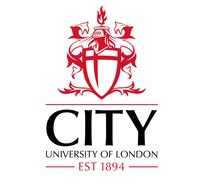
Thermodynamic analysis of volume flow rate ratio on the performance of a NH3/CO2 cascade refrigeration system.
Number: B3-174
Author(s) : YANG Q. C., LIU L., LIU G. B., ZHAO Y. Y., LI L. S.
Summary
NH3/CO2 cascade refrigeration system is the most potential and promising selection in low temperature applications. To meet the cooling demands of CRS at various working conditions, the capacity regulation of the screw refrigeration compressor is needed. This paper specifically studied the impacts volume flow rate ratio of high temperature cycle (HTC) and low temperature cycle (LTC) on the system performance. The simulation model of CRS including energy and exergy analysis was established. Based on the obtained results with the models, it can be found that there exists an optimum volume flow ratio that makes the maximum COP and exergy efficiency and the optimum volume flow ratio value is different under various working conditions. When the evaporation temperature is -55℃,the optimum volume rate ratio is about 2.4 and corresponding maximum COP and exergy efficiency of CRS is 1.031 and 0.346, respectively. The optimum condensing temperature of LTC is -9.75℃. When the volume flow ratio is increasing, which means the motor frequency or rotational speed of HTC compressor increases while the rotational speed of LTC compressor is fixed, the optimum intermediate temperature decreases and the discharge temperature of HTC compressor increases proportionally. The cooling capacity could be enhanced by increasing the volume flow ratio. The obtained results are helpful for the screw refrigeration compressor regulation in CRS under various working conditions and cooling demands.
Available documents
Format PDF
Pages: 9
Available
Free
Details
- Original title: Thermodynamic analysis of volume flow rate ratio on the performance of a NH3/CO2 cascade refrigeration system.
- Record ID : 30028760
- Languages: English
- Subject: Technology
- Source: 12th International Conference on Compressors and their Systems
- Publication date: 2021/09
- Document available for consultation in the library of the IIR headquarters only.
Links
See other articles from the proceedings (63)
See the conference proceedings
Indexing
-
Themes:
Ammonia;
CO2;
Thermodynamic measurements - Keywords: Ammonia; CO2; Cascade system; Low temperature; Modelling; Simulation; COP; Exergy; Thermodynamic property
-
Pushing the envelope: extending the range and p...
- Author(s) : LOW R.
- Date : 2020/07/31
- Languages : English
- Source: IIR Rankine Conference 2020.
- Formats : PDF
View record
-
Experimental evaluation of a cascade refrigerat...
- Author(s) : CABELLO R., SÁNCHEZ D., ANDREU-NACHER A., LLOPIS R., NEBOT-ANDRÉS L., CALLEJA-ANTA D., VIDAN-FALOMIR F.
- Date : 2022/06/13
- Languages : English
- Source: 15th IIR-Gustav Lorentzen Conference on Natural Refrigerants (GL2022). Proceedings. Trondheim, Norway, June 13-15th 2022.
- Formats : PDF
View record
-
Thermodynamic analysis of a R744-R717 cascade r...
- Author(s) : MESSINEO A., PANNO G.
- Date : 2011/08/21
- Languages : English
- Source: Proceedings of the 23rd IIR International Congress of Refrigeration: Prague, Czech Republic, August 21-26, 2011. Overarching theme: Refrigeration for Sustainable Development.
- Formats : PDF
View record
-
New refrigerant developments for very low tempe...
- Author(s) : LOW R., SEETON C.
- Date : 2022/04/11
- Languages : English
- Source: 7th IIR International Conference on Sustainability and the Cold Chain (Online). Proceedings: April 11-13 2022
- Formats : PDF
View record
-
Lower GWP options to replace R-23 for ultra-low...
- Author(s) : KUJAK S., SCHULTZ K.
- Date : 2020/08/26
- Languages : English
- Source: 6th IIR International Conference on Sustainability and the Cold Chain. Proceedings: Nantes, France, August 26-28 2020
- Formats : PDF
View record
